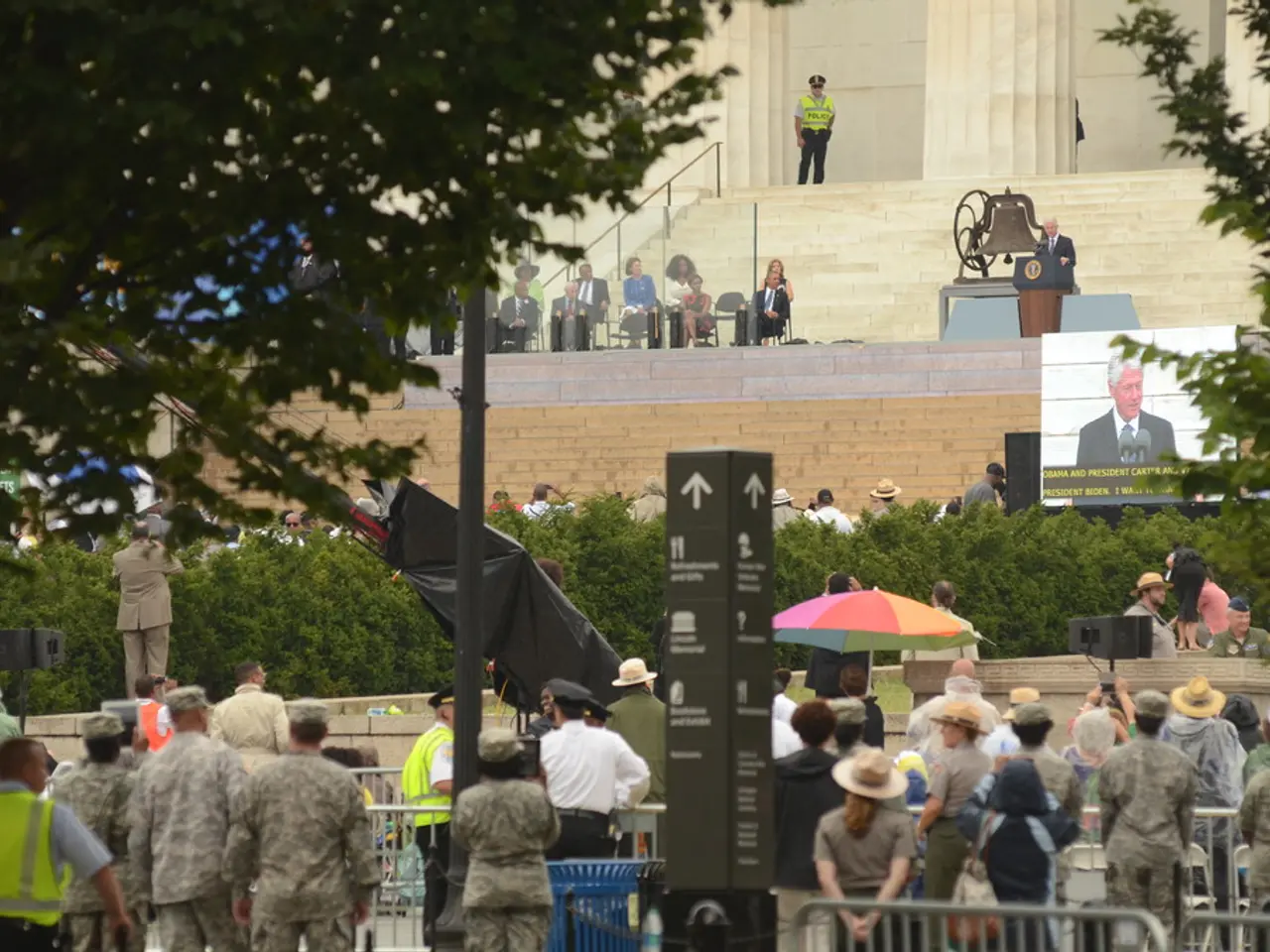Military Durability Estimated at One Year; Civilian Population Urged to Prepare as Potential Replacements for Cannon Fodder | Refrain from Compliance Ordered
In the heart of 2025, the United Kingdom finds itself grappling with concerns over military recruitment and combat readiness, as highlighted in a report published by the British House of Lords in February 2024, two years after Russia's invasion of Ukraine.
The report, titled 'Ukraine: A Wake-Up Call', acknowledges weaknesses in NATO's assumptions on "deterrence" and paints a concerning picture of the British Army's ability to contribute adequately to NATO's deterrence strategy. Despite these challenges, the UK government, as of now, has not formally announced or implemented military conscription.
The Strategic Defence Review 2025 emphasizes modernization and capability enhancement of the armed forces through technology, increased lethality, and investment in equipment rather than expanding personnel by compulsory service. Current recruitment efforts continue to rely on volunteers, as evidenced by active recruitment campaigns with numerous vacancies listed in the British Army, Royal Navy, and Royal Air Force.
The report suggests that the civilian population 'must be ready to fight' if war with Russia is triggered. However, public opinion data from 2024 indicates that about 30% of UK adults aged 18-40 would refuse conscription even if the UK faced an imminent invasion threat. This suggests potential public resistance to drafting, which may influence government policy decisions.
The House of Lords calls on Prime Minister Keir Starmer to develop a plan that resonates with citizens, emphasizing the importance of national security in their daily lives. The government is urged to broaden the discussion on building resilience to include the whole of society.
The current size of the British Army is 75,166 regular troops and 183,000 personnel across all branches. Only 80,000 of these personnel would play a front line combat role. If the casualty numbers coming out of Ukraine are anywhere close to accurate, this would not be enough troops to sustain a single year of combat in an attrition-based war.
The potential for conscription being useless is raised due to the low levels of military recruitment. The government's actions may be seen as a deterrent to patriotic military recruitment. The House of Lords also suggests that defense is not solely the military's responsibility.
The threat of World War III is a significant factor in public apprehension about military readiness. Some perceive the British government as eroding indigenous Anglo-Saxon British identity through forced mass immigration from third-world countries. Criticizing the government on social media may lead to arrest, according to some perceptions.
The insignificance of Ukraine to many westerners may contribute to their lack of enthusiasm for a potential conflict. The British public's lack of interest in military readiness may be due to the government's perceived Orwellian tactics and oppression.
In contrast to some other European countries like Germany, which are considering or reintroducing conscription in 2025 to meet NATO troop commitments, the UK has so far preferred to address defense needs through technology upgrades, new defense commands (e.g., CyberEM Command), and enhancing the professional volunteer force rather than mandating military service.
As the world watches and waits, the UK continues to navigate these challenges, striving to maintain a balance between national security and individual freedoms.
- The report published by the British House of Lords, Ukraine: A Wake-Up Call, raises concerns about the UK's general news issue of military readiness and the UK's ability to contribute to NATO's deterrence strategy, specifically in war-and-conflicts scenarios like the one in Ukraine, emphasizing the need for the truth about the state of the British Army to be known to the public, and for articles discussing these matters to be written.
- In the midst of potential politics involving the threat of World War III and concerns over national security, the House of Lords urges Prime Minister Keir Starmer to develop an effective plan that not only addresses the issue of general news, such as military recruitment and combat readiness, but also ensures that the civilian population, as suggested in the report, is truly ready to fight if necessary, emphasizing the need for a widespread discussion on building resilience that involves the whole of society, thereby influencing the country's indigenous identity and ensuring freedom for its citizens.




